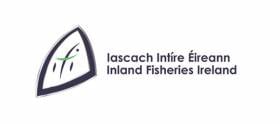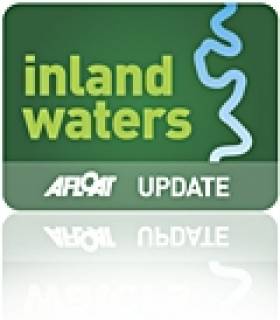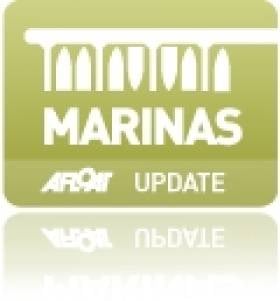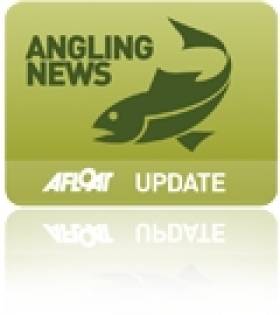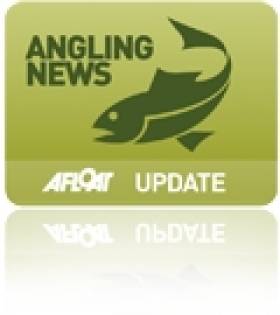Displaying items by tag: Cavan
Inland Fisheries Ireland (IFI) says it is investigating a recent fish kill incident recorded on the Ballinagh River in Co Cavan.
Environmental and fisheries officers from the North-Western River Basin District were alerted to the incident by a member of the public on the evening of Tuesday 19 July.
Water samples were taken at the location and removed for scientific analysis.
The State agency responsible for the protection and conservation of freshwater fish and habitats estimates that in excess of 150 fish were killed in the incident, including brown trout, stickleback and minnow.
IFI adds that as investigations are ongoing, it is not in a position to comment on the cause of the fish kill at this stage, pending further analysis of samples taken.
Dr Milton Matthews, director of the North-Western River Basin District with IFI acknowledged the ongoing support of the public in reporting suspected cases of water pollution and fish kills.
“We are grateful to the member of the public who reported this incident to us so promptly, which enabled our team to take immediate action and start our investigation without delay,” he said.
“Early notice is very often critical in determining the underlying cause of fish kill events, such as this one on the Ballinagh River.”
Members of the public are encouraged to call IFI’s new confidential 24-hour hotline number on 0818 34 74 24 to report any sightings of fish kills or suspected water pollution.
Meanwhile in Northern Ireland, the Loughs Agency has confirmed a fish kill on the River Mourne in Strabane, Co Tyrone where a number of dead adult salmon were discovered in the river’s lower stretch.
“Fishery officers are currently attempting to recover a number of dead fish to allow investigation,” the agency says.
“The cause at this moment is unknown. Officers at this time do not wish to speculate, but high-water temperatures and ambient air temperatures can result in conditions in our rivers that may be unfavourable to fish.
“Anyone recovering a dead fish should contact the Loughs Agency 24-hour response number on +44 287 134 2100.”
Inland Fisheries Ireland (IFI) has prosecuted Irish Water for two separate pollution incidents which occurred in Cavan last summer.
On Thursday 6 June, Judge McLoughlin twice convicted Irish Water at Cavan District Court under the Fisheries (Consolidation) Act 1959 for allowing harmful substances to enter the water on two occasions in June last year.
Over 600 fish were killed as a result of one pollution incident while an important habitat for spawning and young fish was damaged as a result of the other.
The court heard evidence from fisheries inspector Cormac Goulding that on 19 June 2018, staff from IFI noticed that the river downstream of the Ballinagh Treatment Plant in Cavan was in very poor condition.
The water was cloudy and the river was covered in sewage fungus and algal growth.
Following an investigation, it was discovered that untreated sewage was being discharged from the water treatment plant and at the pumping station further downstream.
Irish Water issued a report to IFI in response to the prosecution which revealed that their computerised monitoring system had been offline for six days, which meant that no alerts had been received about the problem.
The effluent was being discharged into aquatic habitat suitable for spawning or young trout.
Judge McLoughlin fined Irish Water €3,000 and total costs of €4,679 were awarded to IFI.
A separate pollution incident occurred a few days later on 25 June 2018 in Cavan Town River.
Judge McLoughlin heard evidence from Ailish Keane, senior environmental fisheries officer at IFI, about how the pollution incident resulted in the death of hundreds of fish including 687 native brown trout.
An investigation found that the fish kill was caused by the release of sewage effluent into the river from an overflow culvert located under Farnham Street Bridge.
Irish Water were again convicted and fined €4,000 plus costs of €4,346.
Milton Matthews, director of the North Western River Basin District at IFI, said: “In both cases in Cavan, harmful material was discharged into local rivers and in Cavan town this resulted in a large kill of over 600 native brown trout, of all age classes.
“As it can take years for a waterbody to recover to its former condition following pollution incidents, it is crucial that robust management systems are in place to prevent avoidable incidents which can have a serious impact on our wild fish and their natural habitat.
“The restoration of the aquatic habitat and the maintenance of water quality is vital if we are to enable wild fish populations to recover naturally.
“We are working to protect, conserve and develop our natural fisheries resource which is of significant recreational and economic value to communities in Cavan and across the country.”
Loughrea Firm Convicted Over Cavan Fish Kill
#FishKill - A Loughrea business was convicted over pollution discharge into the Laragh River in Co Cavan, causing a major fish kill between 12-14 August last year.
In addition to the fine of €4,000, Glan Agua was directed to pay legal costs and expenses to Inland Fisheries Ireland (IFI) to a total of €63,352.94 including €59,262.94 towards appropriate mitigation measures.
Glan Agua was prosecuted by IFI following investigations into a fish kill on the Laragh River after the discharge of chorine from Knockataggert drinking water treatment plant.
At a sitting of the District Court held at Cavan Courthouse on Thursday 23 June, Judge Denis McLoughlin heard evidence from Ailish Keane, senior fisheries environmental officer with IFI, that IFI carried out detailed investigations on the Laragh River over a number of days after a tip-off from the public.
It was established that more than 3,000 fish – including brown trout, minnow, stone loach, eel and stickleback – had been killed over a distance of 6km from a surface water outfall at the Clifferna Bridge to just below Drumgur Bridge.
Giving details of sampling and analysis undertaken, Keane confirmed the discharge from the surface water pipeline to the Laragh River was characterised by seriously elevated levels of sodium hypochlorite, otherwise known as chlorine.
Keane said that on the morning of 13 August, she visited the Knockataggert drinking water treatment plant at Clifferna, Co Cavan. She noted that there was a serious fish kill and that there had been a chorine on the premises that had subsequently discharged into a surface water pipe that later flows directly into the Laragh River.
On instruction, staff from Glan Agua immediately completed the clean-up of the discharge and prevented all remaining effluent residues from entering the watercourse. Glan Agua staff were found to be fully co-operative at all times during the investigation.
The legal representative for Glan Agua, who told Judge Mcloughlin their client pleaded guilty in the matter, noted his client’s pristine record prior to this incident. He said that a director of the company was present in court and the employee who presided over the plant on the date the incident took place had been severely reprimanded.
Extensive evidence was given by Keane regarding the extent of investigations undertaken as a result of this significant pollution incident. The court was told it would take years for the river to regenerate itself to the condition it was in previous to the incident. Judge McLoughlin stated he could not stress the seriousness of the situation enough prior to handing down the sentence.
IFI has a confidential hotline number to enable members of the general public to report incidents – 1890 34 74 24 or 1890 FISH 24. This phone line is designed to encourage the reporting of incidents of illegal fishing, water pollution and invasive species.
Missing Man's Body Found In Cavan Lough
#Missing - TheJournal.ie reports that the body of a man who went missing last weekend has been found in a Cavan river.
Donal Greene, 22, was last seen around 5am last Saturday morning (28 February) near Ballyconnell, Co Cavan, close to the Fermanagh border, and his disappearance prompted a wide-ranging search operation.
But yesterday afternoon (Saturday 7 March) it was confirmed that his body was round at Derrycassan Lough on the course of the Woodford River.
TheJournal.ie has more on the story HERE.
Fisheries Officers Investigate Cavan Fish Kill
#FishKill - Inland Fisheries Ireland (IFI) received reports of a fish kill on the River Lear in Baileborough, Co Cavan last Friday 23 May.
IFI staff responded immediately to the report and their investigations revealed approximately 35 dead brown trout and roach on this tributary of Castle Lake.
The kill extended over 2km, from just upstream of Lear Bridge (on the Baileborough to Shercock Road) as far as Castle Lake.
Water samples were taken from a number of locations along the affected stretch and IFI are awaiting results. Subsequent reports of dead fish in Castle Lake have been received by IFI.
Cavan County Council, who was informed of the fish kill by IFI, has launched its own separate investigation. IFI has also informed the Environmental Protection Agency (EPA).
During the course of their investigations, IFI staff also found a number of dead trout in a field adjoining the River Lear and a separate investigation has commenced to establish to how these fish came to be at this location.
IFI is particularly concerned about these incidents on the River Lear as there have been a number of fish kills here in the past, especially during low flow and high temperature events.
New Marina On Lough Ramor Opens This Saturday
#IrishMarinas - The official opening of the new Ramor Watersports Club Marina will take place this Saturday 30 November.
Cavan county manager Jack Keys will handle the official duties from 2pm at the new marina facility on the shores of Lough Ramor, in front of the Lakeside Manor Hotel in Virginia.
The €300,000 marina development was completed late last month, according to the Anglo-Celt, and features 30 secure berths - eight of which are open to visiting tourists.
In addition the marina will house two 16ft Wayfarer salmon boats that will be used by club members, and for sail training classes on the lough next summer.
And it's expected that the new marina will provide a gateway to the lough for a broad range of watersports activity beyond boating from kitesurfing to diving to angling.
Made possible through leader funding of €200,000 and sponsorship, the marina's costs are not yet fully covered and the Ramor Watersports Club (RWC) still needs to meet the difference of some €60,000 over the next five years.
To this end it plans a series of fundraising events that will be advertised via the club's Facebook page and local media.
"We really look forward to exciting times ahead, when the current Virginia Town Harbour Project is restored, to encourage boat traffic all around the lake," said RWC chair John Wilson.
Young Man Drowns In Cavan Lake
#Drowning - RTÉ News and The Irish Times are reporting that a man has died after getting into difficulty while swimming with friends at Knocknagarton Lake near Virginia in Co Cavan last night (Monday 24 June).
The as-yet-unnamed 26-year-old was taken to Cavan General Hospital where he was pronounced dead. A post-mortem has been scheduled to be carried out today.
#Angling - Minister Fergus O'Dowd launched Ireland’s first purpose-built disinfection station for angling enthusiasts at Ballyhoe Lake in Co Cavan on Wednesday 3 April.
The new facility - developed by Inland Fisheries Ireland (IFI) in co-operation with Interreg IVA (CIRB), the Irish Angling Development Alliance (IADA) and the local Meathhill Angling Club - will facilitate the disinfection of angling equipment on entry to the lake, helping to ensure that unwanted alien invasive species and harmful fish pathogens can be kept out of our natural fisheries.
Moreover, the development will also provide a template for further such facilities on fishery watercourses throughout the country.
The disinfection station is located at the entrance to Ballyhoe Lake, a prime Irish specimen tench fishery.
The entrance gate and the disinfection station are secured with combination locks, the numbers for which are available through nominated members of the Meathhill Angling Club (contact numbers for these members are provided on the tank). Members of the club will replace the disinfectant and manage the facility locally, as necessary.
Once opened, the tank contains a disinfection container for boots, keep nets, landing nets and stink bags. Disposable gloves are provided for angler use while disinfecting, and a brush is available to scrub boots, as well as a spray bottle for boats coming onto the lake.
Signage adjacent to and underneath the lid of the tank provides step-by-step instructions for the angler. Once the gear has been disinfected, the anglers apply a tag to his or her net to show that the process has been completed. Different colour tags will be utilised at the discretion of the operators.
Congratulating Meathhill Angling Club and the IADA at the launch, Minister O'Dowd said: "Angling clubs and federations the length and breadth of Ireland are key to the protection of our angling resources. By providing facilities such as this, we are adding to the goodwill and community commitment of Meathhill Angling Club to protect their fishery, while also ensuring access to it.
"This access helps to safeguard the sustainability of our valuable resource which will continue to bring much needed revenue to the local community through responsible angling activity."
The minister added that he "can’t emphasise enough the role anglers and clubs have on the frontline in the fight against invasive species, which supplements the great work in the area carried out by IFI with the support of representative bodies such as IADA."
#News - The body of a Meath teenager who went missing in the early hours of Easter Monday has been found in the River Blackwater, as the Irish Independent reports.
Ricky McDermott, 17, disappeared after a night out in Virginia, Co Cavan on Sunday night.
Following a search launched on Monday morning, The Irish Times reports that a body was recovered from the River Blackwater in Virginia around 5pm yesterday (2 April) by the Boyne Fishermen’s Rescue and Recovery service.
In other news, the man pulled from the water near Portstewart Harbour yesterday has died.
BBC News reports has named the deceased as Stanley Duncan, who was chief executive of the Driver and Vehicle Agency in Northern Ireland.
It's understood that the 57-year-old has been fishing at rocks near the harbour when he fell into the sea by Victoria Terrace.
Young Dublin Angler Catches Record Trout At Lough Ramor
#Angling - A new record has been set by the Dublin Angling Initiative with 16-year-old Eric Cahill catching a fish of a lifetime - a 12lb ferox trout from Lough Ramor in Virginia, Co Cavan.
This is the biggest fish ever caught by a youngster out angling with the Dublin Angling Initiative (DAI).
The fishing trip for a group of 10 young anglers was organised for Mulhuddart Foróige Fishing to Lough Ramor by Des Chew of the DAI in March.
Following an introduction by Des on the setting up of rods, rigs and bait presentation, the youngsters were soon fishing for roach, hybrids and perch with others choosing to fish for pike.
Great fun was being had by the group who were catching and releasing lots of coarse fish.
Meanwhile, Eric patiently waited for a pike to take his smelt deadbait. He signalled for assistance when his rod tip nodded indicating a take. Under the guidance of Des Chew and Chris McGregor, he was instructed to knock his bale arm over so this cagey fish would feel no resistance.
Suddenly there was a short run and Eric struck. It was obvious he had a big fish on. When the fish drew close, the golden-spotted body revealed that Eric was now playing a fish of a lifetime and maybe the first specimen caught by a DAI angler.
The fish was landed amid great excitement by the kids, youth workers and a crowd of local anglers alike.
Before release it was weighed on certified scales, and laid out and measured on an Inland Fisheries Ireland measuring mat. It reached a length of over 80cm and weighed in at over 12 lbs.
There was jubilation among Eric and his peers as Des announced that he had just caught the first specimen from over 10,000 teenagers who have participated in DAI courses over the last 15 years.
If this fish is ratified by the Irish Specimen Fish Committee it will also be the first specimen recorded from Lough Ramor.
Eric Cahill has been a member of Mulhuddart Foróige Fishing in west Dublin since he has been 10 years of age. During that time the DAI says he has always shown unique ability to listen and learn angling skills from his tutors.
He has attended numerous fishing courses in game, coarse and sea fishing run by the DAI with his Foróige youth officers, Bernie Moloney and Siobhan Hennessy.
According to Inland Fisheries Ireland, this was truly a very proud moment for Eric and the Dublin Angling Initiative, whose members now have a new record to beat!



























